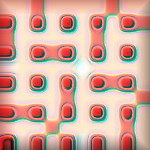Brainsteem #9 Prize Maths Puzzle [Win 40% and 10% in SBD]
Remember that there are TWO prizes to aim for.

The Question
You have nine cards numbered from 1 to 9. You shuffle them and place them face down on the table. You then pick each card randomly and lay them out in order. Find the probability that the resulting 9-digit number is divisible by 99.
Express this probability as m/n, where m and n are relatively prime. What is the sum (m + n)?
The Prizes
To qualify you must upvote this post and write the answer in a comment.
To win First Prize you must include the answer and a valid method.
The First Prize will be 40% of the earnings generated by this post, paid in SBD.
The Second Prize will be 10% of the earnings generated by this post, awarded to any other correct answer in the comments section, chosen at random and paid in SBD.
Also remember that your upvote generates curation rewards for you and that 25% of all earnings are given to upvoters.
Prizes will be awarded after the 7 days have expired. Winners will be announced in the comments below after the draw.
The Prizes will increase with more participation and as the earnings increase.
The main thing is to enjoy the challenge and maybe learn something new.
Come and check out other challenges currently live!
Brainsteem Compute #2 Prize Computational Maths Puzzle [Win 40% and 10% in SBD]
Brainsteem Quickfire Q4 [Win 40% and 10% in SBD]
Brainsteem Compute #1 Prize Computational Maths Puzzle [Win 40% and 10% in SBD]
Brainsteem #8 Prize Maths Puzzle [Win 2SBD+1SBD]
Science Cryptic Crossword SCX1 [Win 10 SBD Prize]
Brainsteem #7 Prize Maths Puzzle [Win 2SBD+1SBD]
Please upvote, resteem and follow @rycharde for more Brainsteems!
And don't forget to upvote each other's comments to bring cheer to the whole community!
since 1+2+.......+9 = 45, so all the permutations is divisible by 9.
The question can be reduced to divisible by 11.
This can be checked by d1+d2-d3+d4.....-d9
the range of the equation is -25 to 25
we can just hardcode to check -22,-11,11,22
matlab time:
allperm = perms(1:9);
reduced = allperm(:,1)-allperm(:,2)+allperm(:,3)-allperm(:,4)+allperm(:,5)-allperm(:,6)+allperm(:,7)-allperm(:,8)+allperm(:,9);
sum((reduced(:)==11)+(reduced(:)==-11)+(reduced(:)==-22)+(reduced(:)==22))/length(allperm)
ans = 11/126
11+126 = 137
Finally got the first prize (hopefully) ^_^
This question is adapted from a maths competition, so can be done with just pen and paper.
So there is still an opportunity for a pen-and-paper solution. In particular, those combinatorial calculations need to be presented.
Oops didn't notice this is a math contest lol
I thought it was the computer-math series
sorry for bruteforcing the answer ;w;
Ok, so this isn't a timely solution but hopefully a complete one.
The sum of the digits in the 9-digit number is always 45, so we know the number is divisible by 9 and only need to check for divisibility by 11. With a number of the form ABCDEFGHI, we want [(A+C+E+G+I) - (B+D+F+H)] to result in some multiple of 11.
When adding together any number of integers, if there are an odd number of odd integers in the group, the sum will be odd. If there are an even number of odd integers, the sum will be even. So no matter how the digits are split, if the 5-digit group has an odd sum then the 4-digit group has an even sum; if the 5-digit group's sum is even, the 4-digit group's sum is odd. Then whenever we subtract two integers, if one is odd and the other is even the result will always be odd.
Therefore we only care about [(A+C+E+G+I) - (B+D+F+H)] having a result of -11 or 11.
Let x = A+C+E+G+I, and let y = B+D+F+H. Then we have a system of linear equations:
2y = 34 -> y = 17, x = 28. If we use x - y = -11 instead, then x = 17 and y = 28.
So we want groups of 4 or 5 digits that sum up to 17 or 28. It's easier to just deal with the groups of 4 digits. Those groups are: 1259, 1268, 1349, 1358, 1367, 1457, 2348, 2357, 2456, 4789, and 5689. Each group can be permuted in 4! (24) ways as digits B, D, F, and H; thus the other 5 digits can be permuted in 5! (120) ways as digits A, C, E, G, and I.
The probability of one of these 9-digit numbers being divisible by 99 then is: (11 * 4! * 5!)/9! = 11/126.
The sum m + n then is 11 + 126 = 137
Um... going for second prize, and copying off @happychau123. My answer is whichever parts of his answer fulfill the requirements of being the second prize. My method was: read the comments section.
I hope you enjoy my inanity.
ans = 11/126
11+126 = 137
coughcough*
hmmm....well.... lol Thx for tagging
I'm an honest cheater.
hmm I can see that lol
I hope I win.
4 number from 1-9 sum up to 17:
1259 1268 1349 1358 1367 1457 2348 2357 2467 (9 combinations)
or 4 number from 1-9 sum to 28: 9874 9865 (2 combinations)
The probability= [11* (4!*5!)]/9! =11/126
so m+n= 137